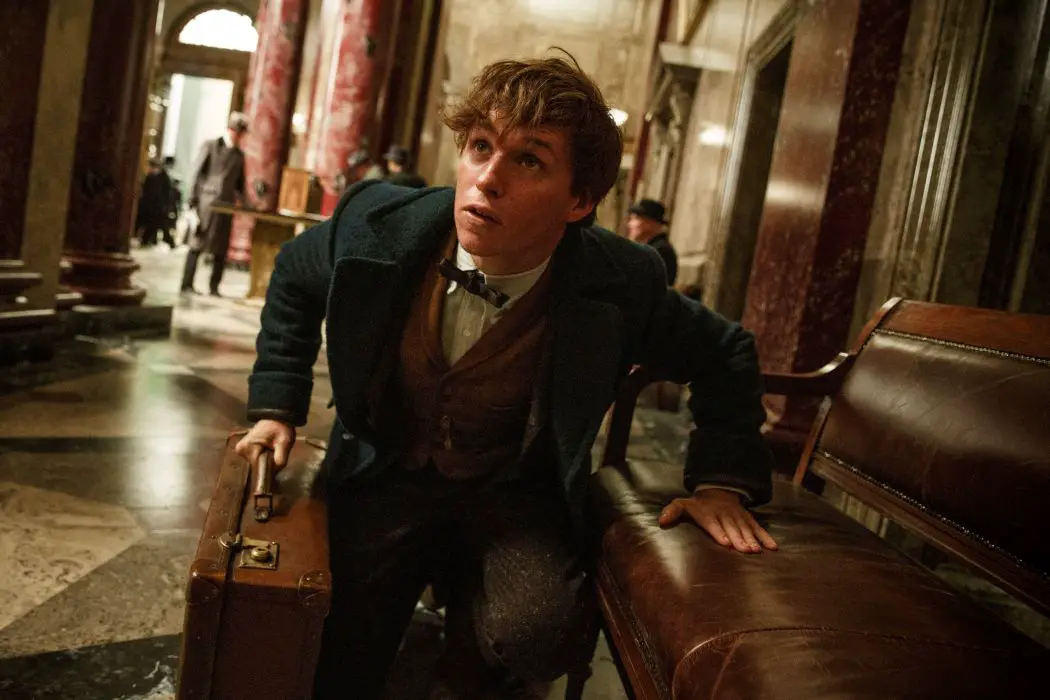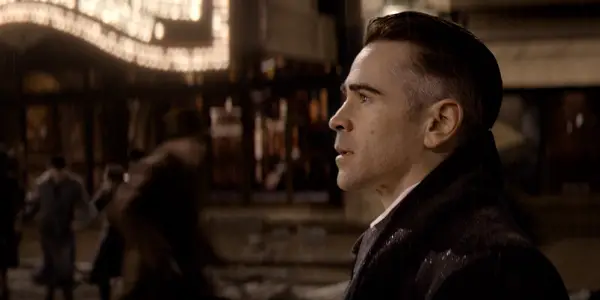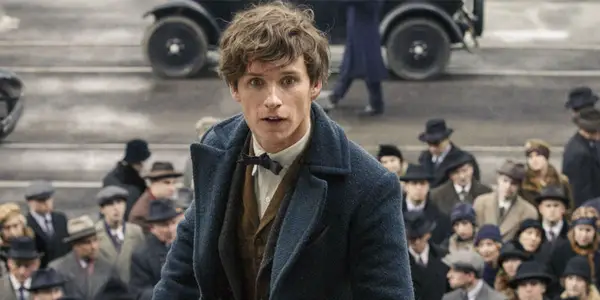FANTASTIC BEASTS AND WHERE TO FIND THEM: Mostly Magical

Alex is a 28 year-old West Australian who has a…
2016 hasn’t exactly been the kindest year in recent history. Outside of the world’s current political and economical state, Hollywood has been hit pretty hard, thanks to a series of high profile celebrity deaths and an alarming rate of critical and commercial failures, which culminated into one of the worst summer periods in history. Thanks to a rise of unwanted reboots, sequels, and remakes, audiences finally decided to vote with their wallets and they told Hollywood – we’ve had enough of this. This didn’t exactly mean that their cash went into helping original cinema, as outside of children’s animated films, the highest grossing original property so far this year (in international and American box office figures) is the comedic dud Central Intelligence.
One of the lessons that studios are slowly learning this year is that the idea of name recognition = box office success just doesn’t happen anymore, with a huge number of high profile mainstream films made off well-known properties just not producing the figures that they once could’ve. This is what makes Fantastic Beasts and Where to Find Them so interesting, the new prequel that purely exists to setup a completely new franchise based upon an existing property, the incredibly still relevant Harry Potter universe.
So does Fantastic Beasts allude the dreaded failed franchise reboot graveyard, collecting a headstone next to Independence Day: Resurgence and TMNT 2? Thankfully, yes, but this doesn’t mean that the film doesn’t have serious flaws that need ironing out before the next expected adventure hits us.
Franchise Foundations
Fantastic Beasts and Where to Find Them tells the story of Newt Scamander (Eddie Redmayne), a committed caregiver of magical creatures, protecting them from the human world and making sure they’re safe. Going from London to New York in the 1920’s, one of Newt’s creatures puts him in the path of two very different characters, Jacob Kowalski (Dan Fogler), a no-maj (human) and Porpentina “Tina” Goldstein (Katherine Waterson), a former employee of the Magical Congress of the United States of America (MACUSA).
As Tina tries to use Newt’s accidental interaction with Jacob as leverage to get her former job back, the trio, alongside Tina’s clairvoyant sister Queenie (Alison Sudol), are drawn into a vast magical conspiracy which involves an anti-magic cult, corrupt MACUSA officer Percival Graves (Colin Farrell), and a plot that threatens both the worlds of wizards and humans.

First off, the biggest highlight of the film is the new series of characters introduced into the Harry Potter universe. Some new, some mentioned throughout J.K. Rowling’s series of books, but none of them feel superfluous or unnecessary, apart from a questionable cameo at the end of the film. All the new characters introduced all work really well together, a perfectly cast set of personalities who are interesting to watch develop onscreen, developing a tight friendship that reminds us of the famous Hogwarts trio.
Eddie Redmayne gives Newt Scamander some much needed character, as he is severely underwritten. His subtle quirks (lack of eye contact, use of magic) makes for an interesting protagonist, even if the film’s narrative isn’t quite interested in exploring this character fully. Dan Fogler shines as Jacob Kowalski, a well-meaning human who acts as the film’s primary exposition machine, our gateway into the wide world of magic. Fogler gives quite a contained performance, a much-welcome shift from his usual acting style seen in previous comedies, where he came across as a Jack Black imitation rather than establishing his own comedic voice.
Not Quite Hogwarts Yet
One of the huge advantages that Fantastic Beasts has in its disposal is that it is set within the Harry Potter universe, one so thoroughly established over 8 previous films that no real heavy exposition is needed to setup all the various fantasy elements within the film. This film sets itself apart from the iconic franchise well enough, accessible for those (very few) remaining people who have not watched the original Harry Potter films, whilst giving enough references and nods to the die-hard fans without it feeling pandering or diverting the narrative to do so.
One of the reasons why the first Harry Potter film was so successful was that not only did it introduce the world to the character of Harry Potter, as well as all the necessary fantasy world-building, but it contained a fully-rounded plot which provided the protagonists with a problem to solve, making for an engaging plot-line. In-between the exposition and character set-ups is an engaging journey that has a proper beginning, middle, and end, one which avoids the usual franchise-building pratfalls. If there never was a Harry Potter sequel, it would still be a satisfying film on its own.
This is not the case with Fantastic Beasts, one which is so pre-occupied with trying to setup conflicts for future films (Dumbledore vs Grindlewald, a legendary battle referenced throughout the Harry Potter novels), that it loses sight in telling a satisfying plot, one which could work outside of its necessary franchise building.

This problem is notable due to the original source material for this film – the book Fantastic Beasts and Where to Find Them. The original novel contains zero narrative; it is just a fictionalised account of the different creatures that exist within the Harry Potter universe, written by the character ‘Newt Scamander’. Whilst they’ve done a great job in taking this basic material and expanding it into a fleshed-out narrative, it seems like they weren’t exactly interested in making Newt their main character, but rather using his character as an accessible entry into probing other areas of the Harry Potter history.
This can be seen in the film’s complete lack of backstory for Newt, a protagonist who is given barely any definitive character depth or intriguing features. To compare again, Harry Potter had a reason to have his story told episodically – he was a cursed child who had to confront those who killed his parents, whilst progressing through each year of school.
Newt has absolutely nothing outside of the love for his beasts, an undying passion that is never properly explained nor expanded upon. By the film’s end, Newt still has no interesting potential for future sequels. This gives the film an anti-climactic feel, ultimately leaving us to wonder as to why we needed to learn about Newt’s brief period in New York in the 1920’s, due to the lack of coherent narrative it presents.

As Fantastic Beasts attempts to blend the parallel adventures of Newt looking for his lost creatures and that of the hunt for Grindlewald, it seems to forget that the narrative should be setup for the paradigms of the feature film model, rather than the episodic nature that novels can get away with. The repetitive scenes of Newt chasing his lost creatures gets old quickly, especially when they start to interrupt the more interesting Grindlewald subplot, as a sharp division exists between the two due to the lack of narrative link until the very end of the film.
The problem stems from the decision to adapt Fantastic Beasts, but having seemingly no interest in telling the Fantastic Beasts actual story, instead choosing to use its recognisable nature in order to entice audiences to re-enter the Harry Potter franchise, creating a new franchise without the dreaded reboot stamp.
The Verdict
Fantastic Beasts and Where to Find Them is perfectly acceptable mainstream fare. A refreshingly non-cynical family-friendly film, Fantastic Beasts features enough charm, great new characters, and entertaining scenes to justify its existence, despite its lack of satisfying plot. Due to the film’s novel origins, it suffers from a frustratingly episodic nature that frequently diverts itself from the main narrative in order to justify the ‘Fantastic Beasts’ aspect of the film’s source material.
With all the new characters established and clunky franchise exposition finally set up, we can hope that the film’s presumed sequels can focus their attention on solid narratives, rather than the tiresome need to juggle two different conflicting plot-lines.
Are you a die-hard fan of the Harry Potter franchise?
Fantastic Beasts is currently screening in theatres around the world.
Does content like this matter to you?
Become a Member and support film journalism. Unlock access to all of Film Inquiry`s great articles. Join a community of like-minded readers who are passionate about cinema - get access to our private members Network, give back to independent filmmakers, and more.













